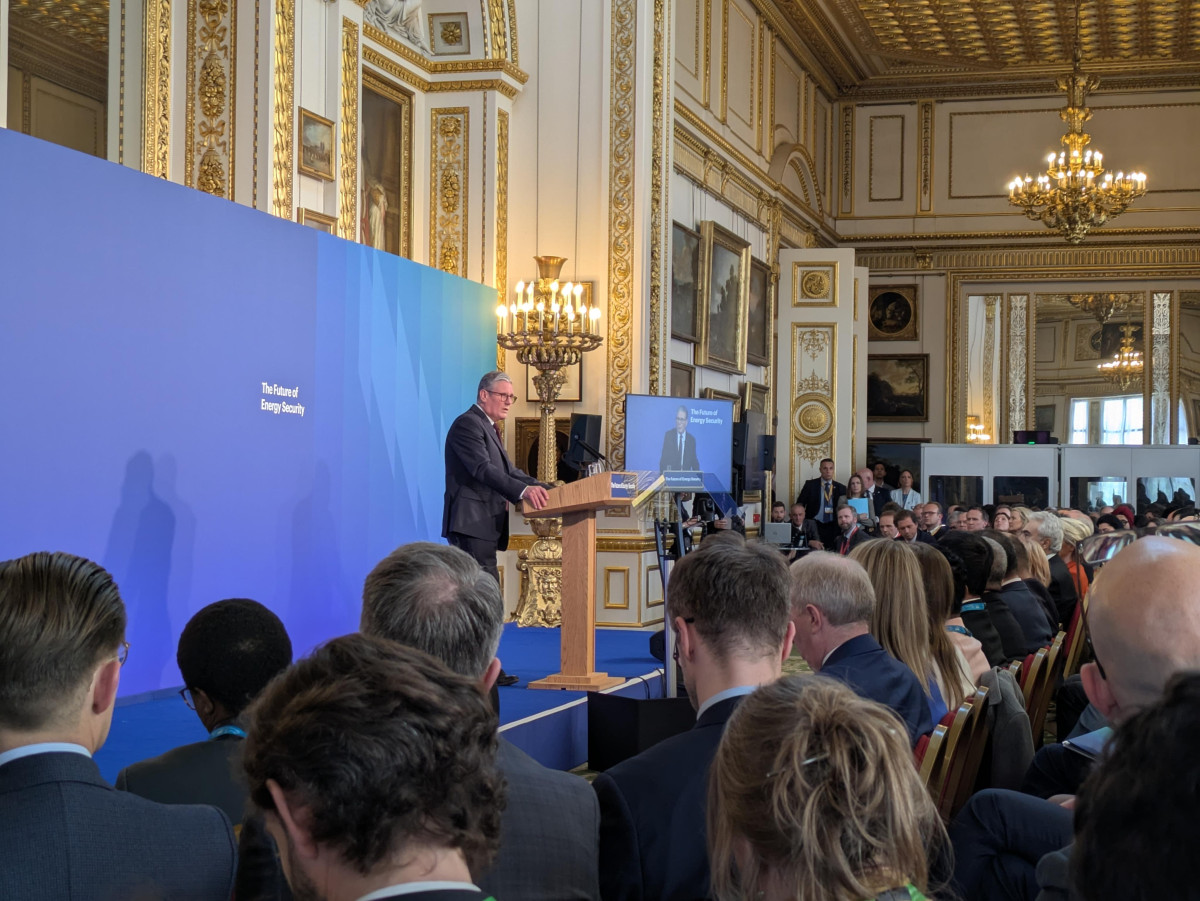EU, UK vow energy security cooperation with home-grown clean sources at the heart
UK prime minister Keir Starmer and European Commission president Ursua von der Leyen have pledged to cooperate closely to guarantee energy supply security for Europeans, making domestic clean sources the crucial pillar. “We stand together united behind European energy security,” Starmer told von der Leyen at the London summit on “The Future of Energy Security”, organised by his government and the International Energy Agency (IEA).
“Our task is clear: to act together to seize the opportunity of the clean energy transition, because home-grown clean energy is the only way to take back control of our energy system, deliver energy security, and bring down bills for the long term,” he said. “This is the moment to build a partnership with the EU that meets the needs of our time, facing up to the global shocks of recent years, and working together to minimise the impact on hard-working people.”
The EU’s von der Leyen agreed with the prime minister. “We reduced our vulnerability to Russian fossil fuels by accelerating the roll-out of homegrown renewable energy,” she said. “In the medium term, this is the best means to ensure energy security.”
Lessons from the energy crisis
Both leaders said that Europe must never again be in a position where Russia could blackmail the continent using energy supplies. With the energy crisis starting in 2021, exacerbated by Russia’s war against Ukraine, energy security has become a key priority for countries in the EU. Russia’s weaponisation of gas deliveries was a stark reminder for countries like Germany on how a heavy dependence on just one or very few suppliers can quickly turn sour - and also strengthened EU-UK energy cooperation despite the fallout caused by the Brexit referendum. Finding alternatives during the crisis came at high costs, which hit energy-intensive industries especially hard.
The EU is expected to present a roadmap towards ending Russian energy imports in early May.
The move to renewable energy is widely considered key to buttressing energy security especially for countries that lack fossil fuel resources. Accelerating the transition to largely domestically produced sustainable energy such as wind and solar electricity is the only way to ensure energy security in Europe, the European Academies Science Advisory Council (EASAC) found in a recent report.
In the run-up to the London summit, energy think tank Ember said that almost three quarters of the global population live in countries that are net importers of fossil fuels, which still make up a large part of countries’ energy mixes. Germany, for example, has to import almost all of the oil, gas and hard coal it uses. The only notable remaining domestic fossil fuel is lignite in the country which has massively ramped up renewables for decades and aims to become climate neutral by 2045.
Ember highlighted that while fossil fuels must continuously be imported, representing a recurring cost for countries, renewable technologies such as solar panels or wind turbines are a one-off investment that could supply energy for decades.
Regulatory certainty ensures investments – von der Leyen
To make the clean transition happen, companies not only need the resources such as critical minerals, but also regulatory certainty, said von der Leyen. “Certainty is something which we can deliver, and the EU framework offers,” she said. “Dear Keir, this is something where the two of us should team up and deliver on what is needed for the investors.”
While cooperation is crucial, “different national pathways should be respected,” cautioned UK energy secretary Ed Miliband earlier during the meeting.
US pushes fossil fuels as key to energy security
The European views on the role of clean sources for energy security clashed with those of the new United States government.
Tommy Joyce, US Acting Assistant Secretary of Energy for International Affairs said that “unfortunately” the focus of the last US administration under former president Joe Biden had been on “climate politics”, which represented a driver of policies leading to energy scarcity. Instead, the US was “blessed” with an abundance of energy sources like oil, gas and nuclear, and the current administration opposed policies restricting the use of these sources, said Joyce.
The move to a renewables-based system would mean “trading one form of dependency for another, putting abstract emission goals and the interests of our adversaries first and the security of our people last.” Joyce warned of raw material dependencies on China for clean energy tech like wind turbines.
Clean tech key for energy security, critical minerals growing risk – IEA
IEA head Fatih Birol highlighted that “no country small or big is an energy island” – even though some can meet their entire energy demand through domestic resources – as the world was connected through its markets and prices, as well as technological advances. Birol said that there are traditional and new energy security risks. Oil and gas are key pillars of the world’s energy mix and will remain so for years to come, so their distribution and supply remains crucial, he said.
Distribution of critical raw materials present a key emerging challenge for energy security, said Birol. “Home-grown energy is the best friend of energy security, but to produce and manufacture the necessary clean energy technologies we need critical minerals.” Very few countries dominate the extraction or processing of many of these critical minerals, with China a major force.


